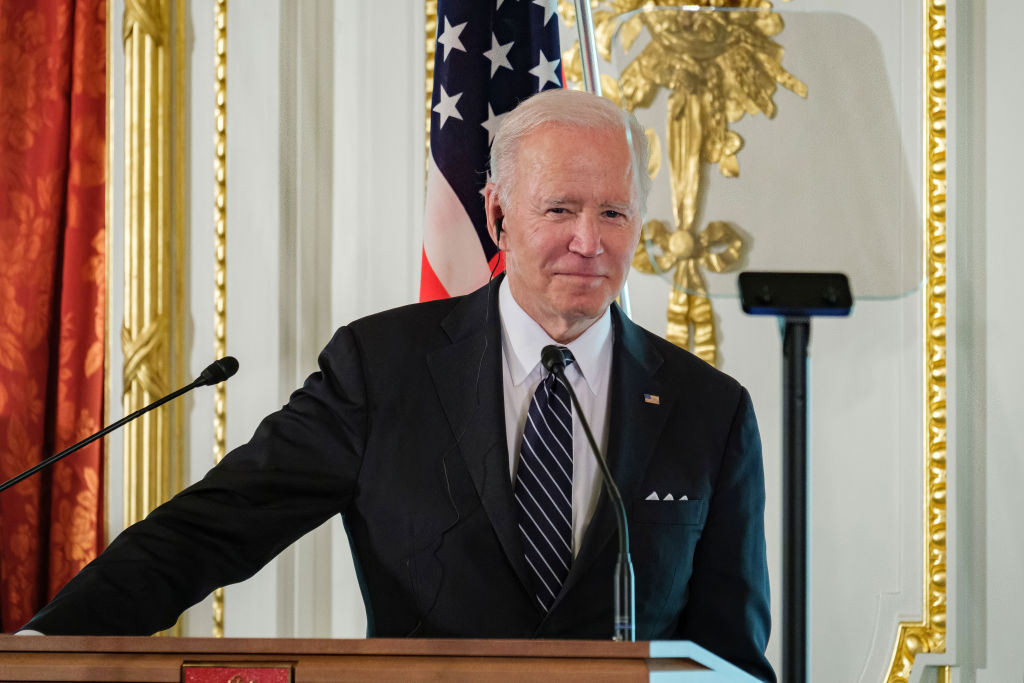
As President Biden is inching closer to making an announcement on a possible plan to cancel some of the $1.7 trillion owed in student debt, rumors of when the final announcement will occur and what the policy might look like are spreading, with no foreseeable answer on a likely timeline or final policy.
A Wall Street Journal article published Tuesday stated that administration officials had thought an announcement might come as soon as this Saturday, when Biden is scheduled to give a commencement address at the University of Delaware.
The officials, however, also stated that no final decision had been reached by the president.
A House Democratic aide confirmed with Inside Higher Ed that they had not yet heard from the Biden administration that a final announcement on debt relief was planned for Biden’s Saturday commencement speech. They did, however, state that Biden’s announcement on debt relief will likely be delayed due to Tuesday’s mass shooting at an elementary school in Texas.
With questions of when and what Biden’s final decision on debt relief will be still largely in the air, higher education leaders have been provided little information on how to prepare for what could be one of the largest shifts in federal policy for higher education in decades.
What’s Coming
Scott Buchanan, executive director of the Student Loan Servicing Alliance, which represents 95 percent of loan providers that service federal student loans, said that no matter what Biden announces, it could take months for loan servicers to implement Biden’s proposal administratively. In addition, a lack of communication between the administration and servicers has given them little room to prepare for such a change.
“If past is prologue, we will have no information in advance. I’ve hoped and I’ve hoped and I continue to hope that they will change that practice so that we could actually get some guidance and be prepared to answer the tens of thousands of phone calls—if not millions—that we will get from borrowers asking what this means for them,” said Buchanan.
In late April, Biden told reporters at a White House press conference that he would make a decision on debt relief within a couple of weeks. Additionally, Biden told reporters that he was not considering $50,000 per borrower worth of debt reduction, a figure that has been advocated for by progressive Democratic senators such as Chuck Schumer of New York, Elizabeth Warren of Massachusetts and Raphael Warnock of Georgia.
Many different proposals have entered public debate as to how Biden should act to forgive student loan debt. These include relief based on income, which many higher education experts and Department of Education officials have stated could impose administrative burdens. The Washington Post reported in April that the administration has considered an income cap excluding borrowers earning more than $125,000 to $150,000 a year.
Biden himself campaigned on a central promise to relieve at least $10,000 in student debt per borrower.
Student loan payments have been paused since the beginning of the pandemic and extending through August. Pressure from Democrats and voters has pushed the topic of student debt forgiveness into the national spotlight and has raised many questions of how it will be implemented administratively.
“It’s going to be complicated even if they do it very simply,” said Buchanan. “I think that’s going to be a frustration for borrowers, too, because they’re going to be waiting months to get this forgiveness.”
The administrative overload borne by loan servicers causing delays in forgiveness for borrowers could have political consequences for Biden, as the midterm elections in November will arrive just weeks after the pause on student loan payments is scheduled to come to an end.
“We all know that this is a political decision, not a good policy decision, and the real question is, could you get this done by November when the election occurs?” Buchanan asked.
Pushback
Although support for debt relief is consistent among the Democrats on Capitol Hill, Republicans have been sharply opposed to Biden’s push for cancellation, and several lawmakers have questioned Biden’s authority to erase student debt via executive action.
Last week, a coalition of Republican senators introduced a bill that would prohibit the Biden administration from canceling student loan debt. Republicans argue that the authority to cancel student loan debt resides strictly in the hands of Congress.
With Republicans in the minority, several higher education experts told Inside Higher Ed that it is unlikely these proposals will get traction in Congress. However, some have speculated that a lawsuit could challenge Biden’s executive authority through the legal system.
“It’s a legal question, and that would have to get sorted out by the courts. If someone sues and says the president doesn’t have the authority, the question is who would have standing to bring a lawsuit,” said Terry Hartle, senior vice president of government relations and public affairs at the American Council on Education.
Legal Services of Harvard Law School released a policy memo in late 2020 that stated that the president could use executive authority to direct the Education Department to cancel federal student loan debt.
from Inside Higher Ed | News https://ift.tt/Uzr6MgN


No comments:
Post a Comment